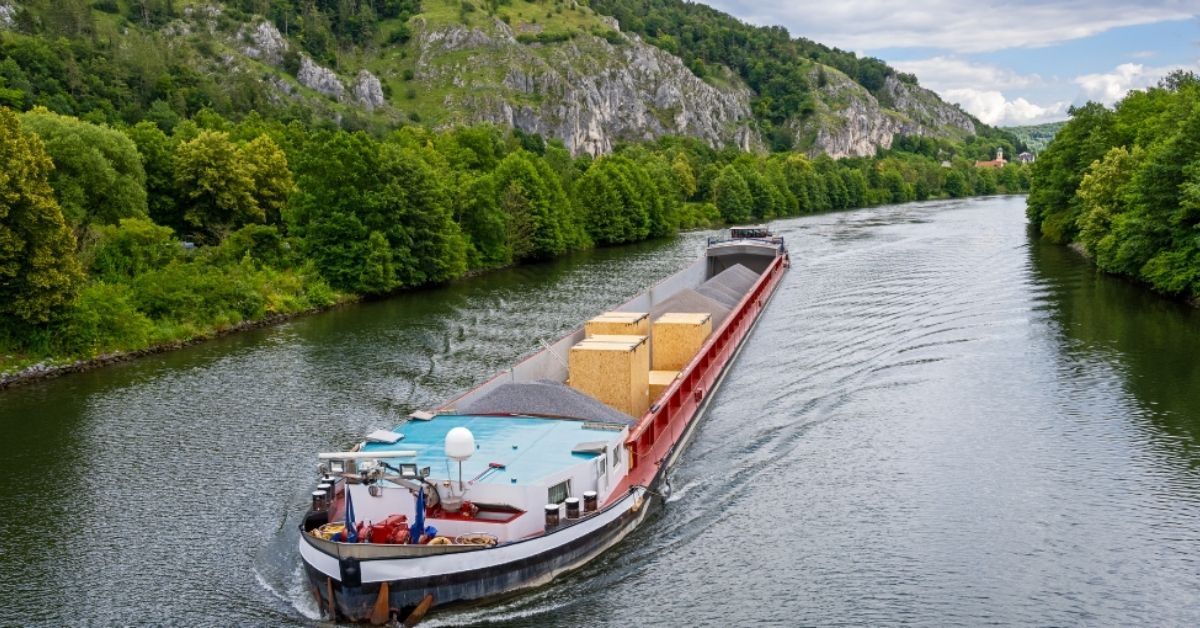The Andhra Pradesh Inland Waterways Authority (APIWA) has revealed two major projects to boost cargo movement, focusing on cement and power plants.
The initiatives align with the Maritime India Vision 2030 (MIV 2030), showcasing a strategic move to tap into the state’s waterway potential.
Inland waterways have been growing rapidly in the country and MIV 2030 builds on this growth trajectory to increase multi-modality and share of inland waterway-borne freight movement and passenger movement in the country
MIV 2030 is a holistic exercise and a blueprint for sector stakeholders to work towards growing the Indian maritime sector and making it globally competitive.
APIWA chairman D Dilip Kumar made this announcement during a press briefing held on Wednesday (27 December) at a stakeholders’ meeting organised jointly by APIWA and the Andhra Pradesh Chambers of Commerce and Industry Federation (FAPCCI).
Kumar emphasised the importance of these projects in aligning with the broader vision for the maritime sector in India.
The proposed projects include the establishment of connectivity routes for the transportation of cargo from clusters of cement factories in Muktyala and Jaggaiahpet to the Kakinada and Machilipatnam ports through the Krishna River (NW-4) and Bandar Canal.
Additionally, plans are in motion to establish connectivity for cement factories and power plants in the Kadapa region, boasting an Inland Water Transport (IWT) potential of nearly 14 million tonnes per annum, encompassing coal, cement, gypsum, and bauxite, with Krishnapatnam port via the Penna River (NW-79).
Among the ambitious projects outlined by Kumar are roll-on-roll-off services at key locations such as Muktyala and Ibrahimpatnam on the Krishna River and Seethanagaram on the Godavari River (NW-4). Furthermore, there are proposals for water-bound tourism circuits on rivers and isolated water bodies along the extensive 978-kilometre National Waterways in Andhra Pradesh.
The APIWA chairman revealed that the feasibility studies for these projects are at an advanced stage, indicating a proactive approach towards their implementation.
Highlighting the economic advantages of waterway transport, APIWA CEO S V K Reddy stated that Andhra Pradesh possesses a vast network of waterways, offering a cost-effective and alternative mode of transportation. With 57 small, medium, and large rivers, along with a vast coastline of 975 kilometres, the state is well-positioned to capitalise on its water resources for economic growth.
The National Waterway system in Andhra Pradesh includes the Godavari River-Krishna Canal system (NW-4), Penna River (NW-79), and Tungabhadra River (NW-104), covering a diverse range of regions and water bodies.
The APIWA’s initiatives aim to tap into this potential, not only for cargo movement but also to boost water-bound tourism and further enhance the state’s economic landscape. Feasibility studies for these visionary projects are anticipated to pave the way for their realisation shortly.




